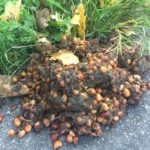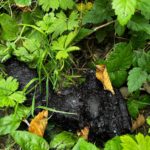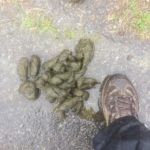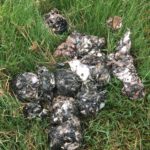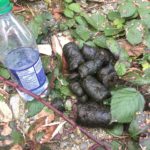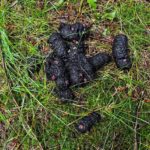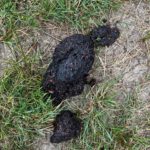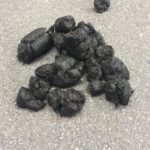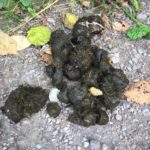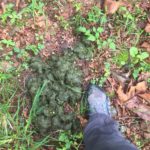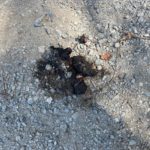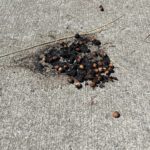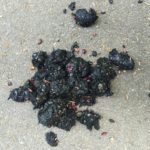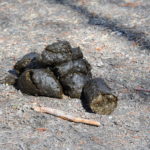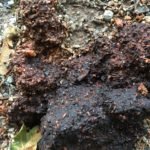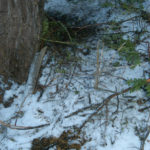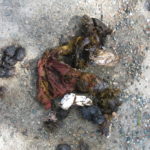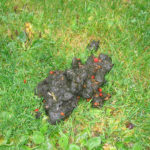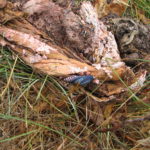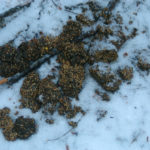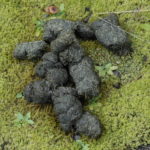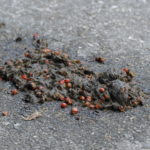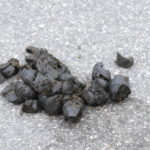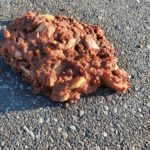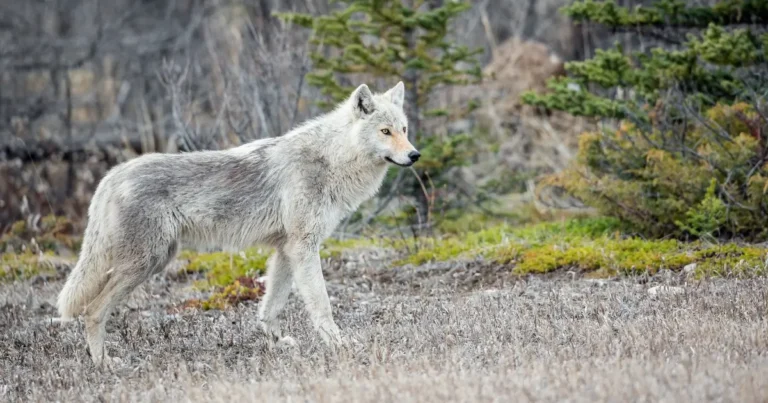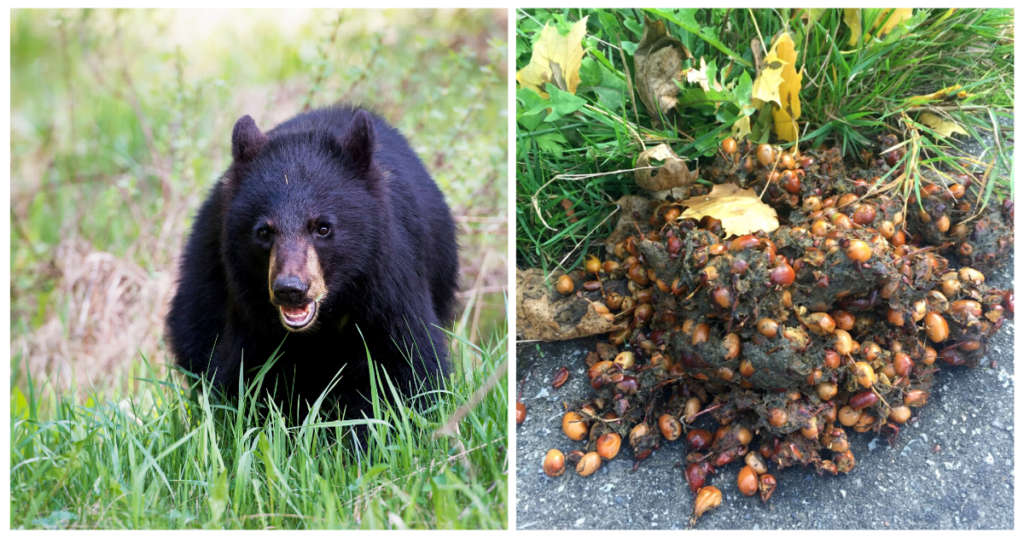
Does a bear poop in the woods? They sure do. You can also find bear poop anywhere in bear country, including the sidewalk!
Bear poo is easy to distinguish from other wildlife scat. It’s large, dark and can appear loose or tubular – depending on what they are eating. Bears are omnivores, so their scat is filled with vegetation, insects, and even animal bones like salmon. During berry season, seeds and undigested apple peels are easily spotted.
You can learn a lot about bears from their scat.
Studying poo is a non-invasive way researchers can help determine the species, sex, health and territories of local bears. They can even study their cortisol (i.e. stress) levels. This can help with conservation because scientists can measure the stress levels of bears in certain areas; like those bruins who live next highways or in cities.
Bear scat is also a big deal because it often contains seeds that have the potential to grow into seedlings. Bear poo is the perfect all-in-one package of seeds and fertilizer. In one experiment, a sample of planted bear scat sprouted 1,200 seedlings! Read more: What Happens When You Plant a Pile of Bear Scat?
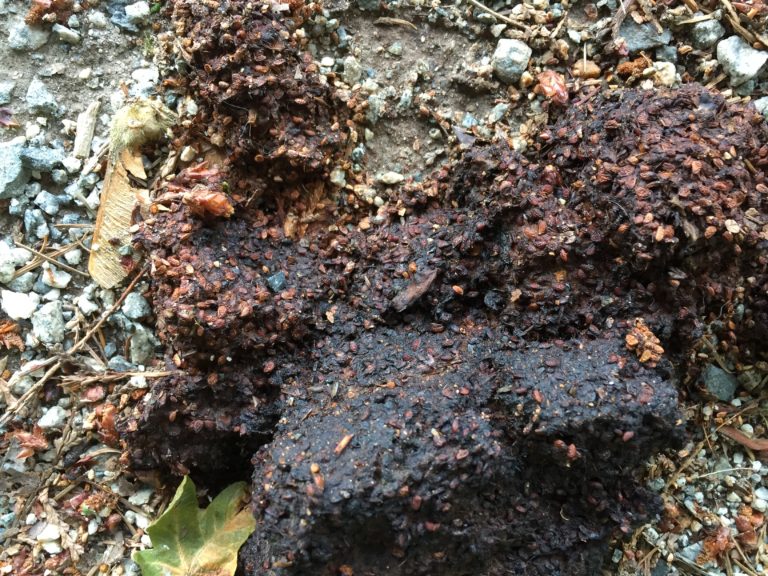
In another project, scientists also discovered that brown and black bears in Alaska spread more fruit seed than any other animal including birds. Read more: Great scat! Bears – not birds – are the chief seed dispersers in Alaska
Fresh poo is a warning sign!
Fresh poo (steaming, wet) is an indicator that bears are in the area, reminding us to use caution and give bears lots of space. If there is a concentration of bear scat in one area, it may suggest bears are living or sleeping nearby.
Lastly, never handle bear (or any scat) with your bare hands. If you are curious, use a stick to “poke the poo” and examine it! You can also collect photographs to share with various nature clubs.
View the photos below to see the various contents of bear poo. What do you see? All photos were taken in British Columbia. Let us know by emailing info@TheFurBearers.com or finding this article on our Facebook, Twitter or Instagram pages!
Further reading
This article was originally published on August 16, 2022.
